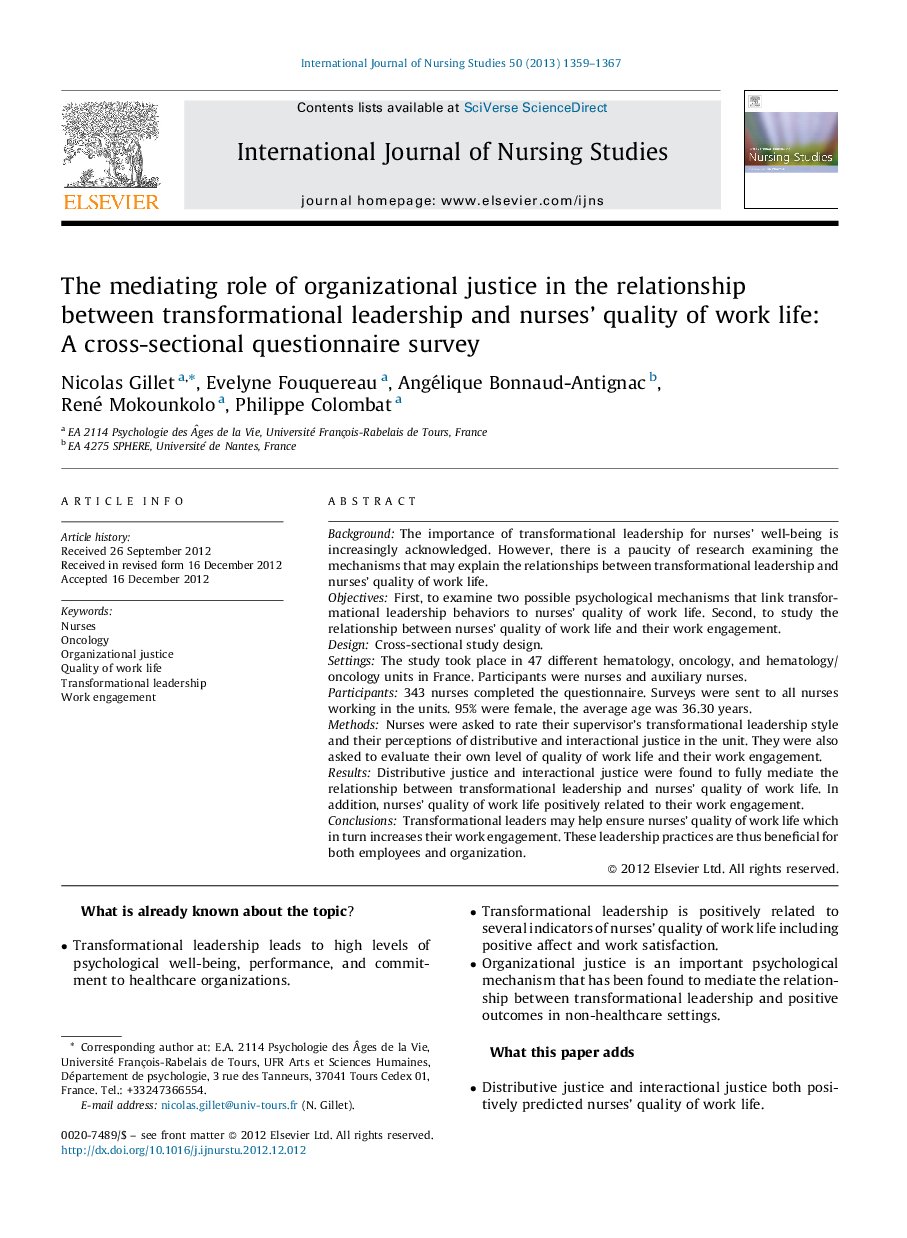| Article ID | Journal | Published Year | Pages | File Type |
|---|---|---|---|---|
| 1076616 | International Journal of Nursing Studies | 2013 | 9 Pages |
BackgroundThe importance of transformational leadership for nurses’ well-being is increasingly acknowledged. However, there is a paucity of research examining the mechanisms that may explain the relationships between transformational leadership and nurses’ quality of work life.ObjectivesFirst, to examine two possible psychological mechanisms that link transformational leadership behaviors to nurses’ quality of work life. Second, to study the relationship between nurses’ quality of work life and their work engagement.DesignCross-sectional study design.SettingsThe study took place in 47 different hematology, oncology, and hematology/oncology units in France. Participants were nurses and auxiliary nurses.Participants343 nurses completed the questionnaire. Surveys were sent to all nurses working in the units. 95% were female, the average age was 36.30 years.MethodsNurses were asked to rate their supervisor's transformational leadership style and their perceptions of distributive and interactional justice in the unit. They were also asked to evaluate their own level of quality of work life and their work engagement.ResultsDistributive justice and interactional justice were found to fully mediate the relationship between transformational leadership and nurses’ quality of work life. In addition, nurses’ quality of work life positively related to their work engagement.ConclusionsTransformational leaders may help ensure nurses’ quality of work life which in turn increases their work engagement. These leadership practices are thus beneficial for both employees and organization.
Graphical abstractFigure optionsDownload full-size imageDownload high-quality image (94 K)Download as PowerPoint slide
